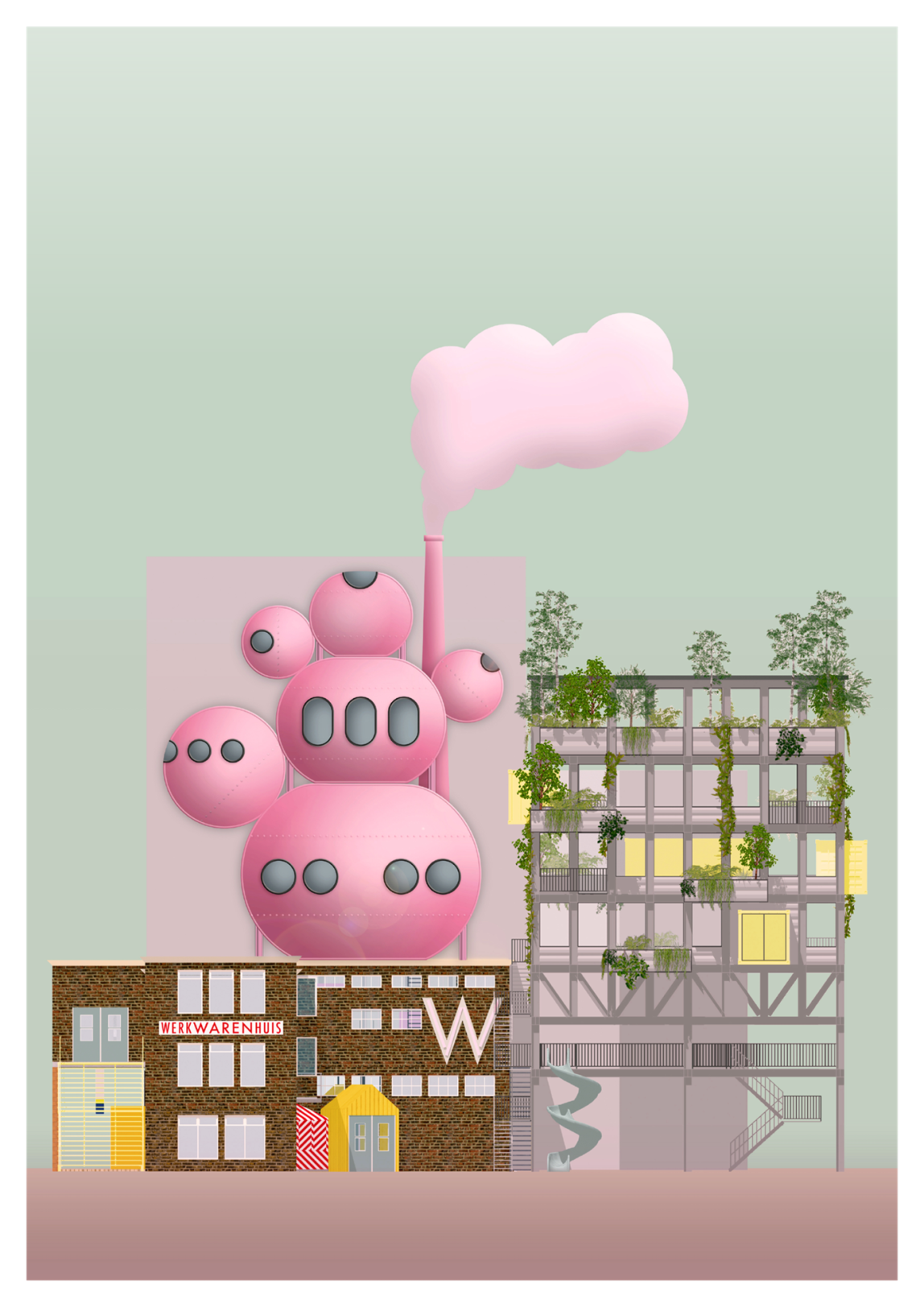
Industry perspectives on the future of leisure
02/29/2024 - 09:34
- Uncover
Madelon Gilaude
What is your position and for what organisation do you work?
I am Madelon Gilaude, and I work in the heritage sector as a museum assistant at MAS (Museum aan de Stroom) in Antwerp for a year. My main duties include the youth activities of MAS in Jonge Handen and events. The MAS is a museum that collects, preserves, researches and displays heritage around the city of Antwerp, the port, and the world in collaboration with various communities.
Do you see matters that threaten the functioning of your sector?
The reality in the big city is that the younger generation (16-26 years) is becoming increasingly diverse. I am not only referring to migration roots, but also to gender, neurodiversity, religious beliefs, interests. Every young person has an opinion and we want to hear them, so we can give them a voice. Due to the hyperdiversity it is a challenge to get everyone involved and not to exclude anyone from the museum’s activities.
In your opinion, what way of ‘flip-thinking’ would be desirable within your sector, organisation and/or environment?
It is nice to experiment with new formats. Involve different audiences, (sometimes) dare to aim your programmes at specific target groups and respect their mutual diversity. Representation in your exhibitions and in your programmes plays a crucial role in this. Urban culture, current social issues and using social media are important in this respect. Thanks to our diverse collection, there are many links to be made and through contemporary ways of collecting you can seek new links.
Rutger de Wit
What is your position and which organisation do you work for? What is the relationship with leisure?
I am Rutger de Wit and I work at ONE2TEN, a research firm located in Bussum. Using our data, we can find experiential solutions which are also very important within the leisure industry. As a project manager, I, along with my team, which is active around the world (India, Singapore and Sri Lanka) make sure that everything runs smoothly!
Where are opportunities in your industry to contribute to a ‘better’ world?
ONE2TEN makes every effort to support companies eager to get better. Companies that want to grow, develop and realise that day-to-day operations can and should always be optimised. Here are opportunities, because with our company we can enhance the creation and implementation of research related to a better world. ‘Improving’ is part of our own DNA, and also of that of clients with whom we enjoy working.
If you could dream freely: what would you like to contribute through your field?
That is a tough one. I personally want and hope to develop more and more in terms of a future-proof world, especially in the area of sustainability. In doing so, I hope I can inspire my own organisation, as well as our clients, to get to work on the fact that things in the world really need to change. I may not have the greatest immediate impact as an individual, but I hope to inspire others to create a true chain reaction.
Simone Kramer
What is your position and where do you work?
I’m Simone Kramer of C-mone, agency for culture and communication. Together with Studio Boot, we were given the key to an old cattle feed factory in 2015. With a healthy dose of idealism, we set to work to add a new atmosphere to the city. Meanwhile it is hard to imagine Den Bosch without developed concepts, such as Werkwarenhuis, Social Label Lab and Tramkade.
What are three essential aspects to build a sustainable and liveable environment?
1. Wonder through applied art
Making ideas visible and communicating them with applied art. Our Werkwarenhuis is a place where people and ideas come together naturally. Where people come into contact with art and culture. Where creators and audiences meet, playfully, indoors and outdoors, on an equal level, in multifunctional spaces.
2. Setting an example with a meaning
Seeing several qualities and trusting each other’s qualities is important in facing complex challenges, such as organic area development through engagement. It is not so much about bricks and systems, but rather about interpersonal relationships. Setting an example, upcycling and re-evaluating a place, so that another leisure experience emerges.
3. Easily accessible and open character
Shaping culture, well-being, space and entrepreneurship in coherence, very broadly and in an easily accessible way. Precisely that broad horizon and open character are important for future developments. Then you are talking about multiple value creation.
If you had to build a future setting, what would it look like?
See the inspiration image (design by Studio Boot) of the Werkwarenhuis after 2025, in which culture, creators and enthusiasts are given a destination through housing, working and living together. Inspired by the bulb houses in Den Bosch (designed by Dries Kreijkamp in 1984) to connect residents with nature; environmentally friendly and energy efficient. Our pink BarbaPapa is the metaphor for transformation and diversity and forms a family together with the black BarbaMama.
This article has been published in Uncover Magazine - Future of Leisure.